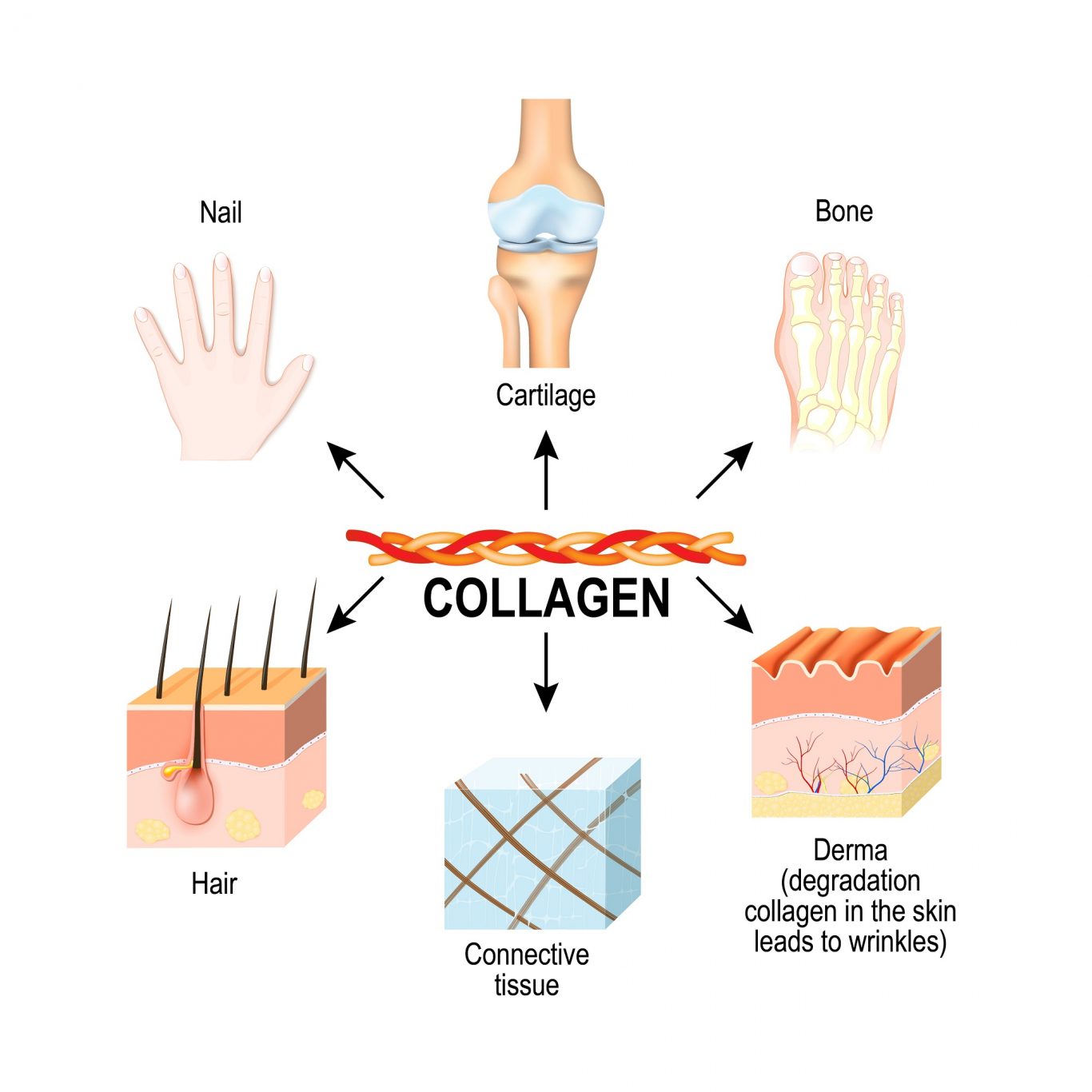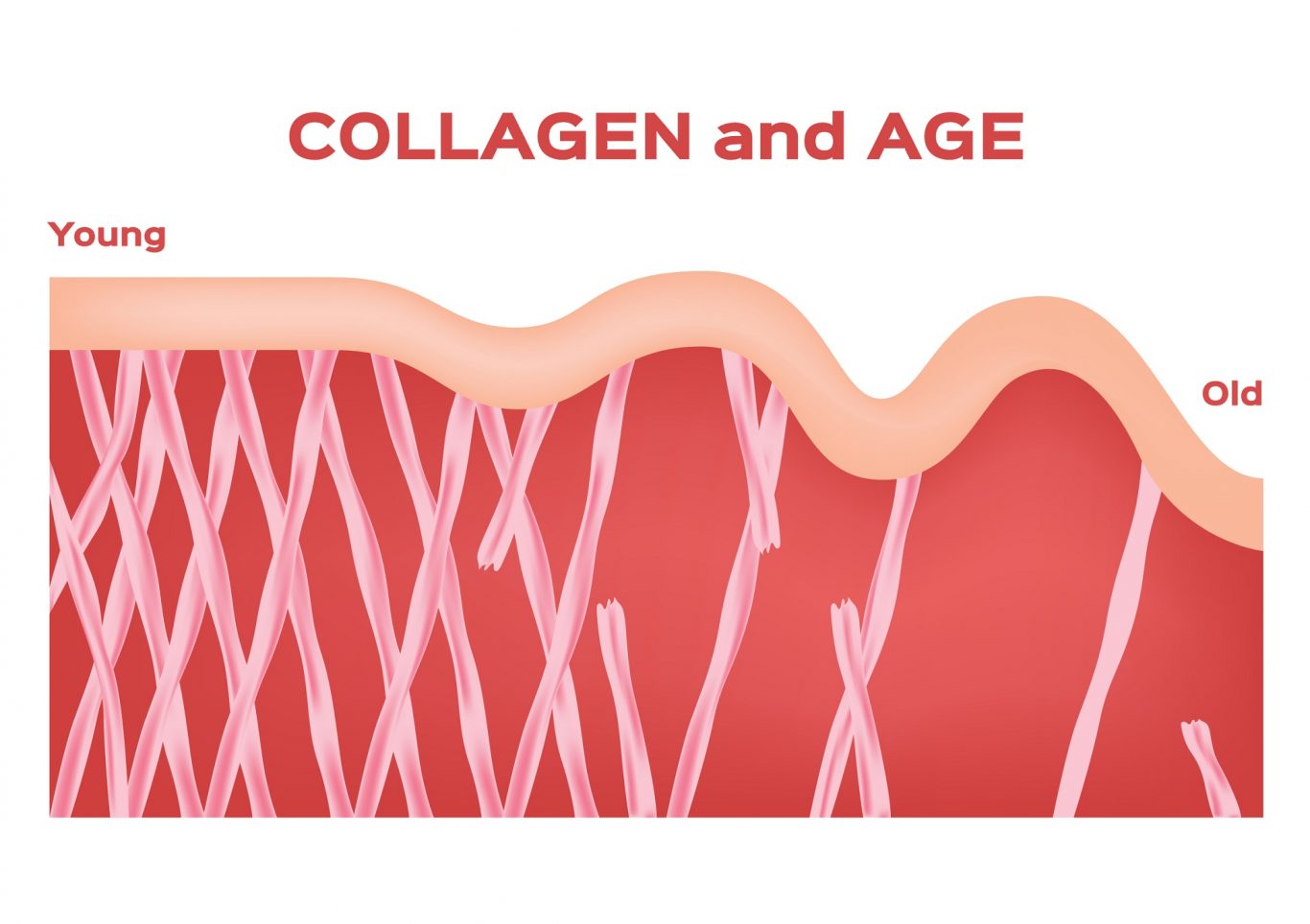We all experience collagen depletion as we age, no matter how much we exercise, our genetics or our diet. Loss of collagen is as certain as taxes, and even less fun to deal with for seniors.
However, research has shown certain lifestyle changes can help you slow loss of collagen, much in the way exercise, diet and other choices we make can help you maintain better cognitive function. Of course, the reverse is also true – there are many things to avoid to maintain better levels of collagen, much in the way you should avoid certain foods that can reduce brain and impact memory.
But first, it’s important to understand what collagen is and why it’s important.

The Function of Collagen in Your Body
Much of the protein in your body is collagen. It’s found in your bones, blood vessels, ligaments, organs, tendons and connective tissues. It’s one of three key factors in normal, healthy skin, which is the largest organ in your body. Collagen, teaming with protein, provides the skin firmness. The two other factors are elastin, which supplies skin elasticity, and glycosaminoglycans (GAG), which keeps skin hydrated.

All three are abundant in our youth. But the loss of all three are inevitable. According to Scientific American, our bodies produce one percent less collagen each year after we reach the age of 20. Our bodies also experience diminished functioning of the sweat and oil glands, less elastin production and less GAG formation.
The result is skin that becomes thinner and more fragile with age. Other signs of lower collagen levels include stiffer tendons and ligaments, muscle mass decrease, the wearing down of cartilage and thinner intestinal walls.
Ways to Improve Collagen Levels in Your Body
As with any protein, your body needs amino acids to produce collagen. While you can’t stop the loss of collagen that comes with aging, there are steps you can take to slow the loss and maintain healthier collagen levels.
First, a list of things to avoid includes:
- Cigarettes. Among all the other horrible impacts smoking has on the body, you can add reducing collagen to the list.
- Inflammation. Eating foods that trigger inflammation in the body can hinder collagen production, including foods high in sugar, simple carbohydrates and processed meat and other processed products.
- Stress. Stress can also lead to inflammation, slowing collagen production. Lifestyle changes can help you reduce stress, including getting exercise and practicing meditation.
Protect Your Skin From the Sun
The young (and even some older people) still prize getting a tan, but it’s not a smart approach to maintaining healthy skin and good collagen levels. Ultraviolet rays are one of the leading causes of skin damage and collagen depletion. At every age, it’s important to protect your skin from UV rays by using strong sunblock (at least 35) on every exposed piece of skin. Prevention of collagen loss is better than trying to increase collagen levels later in life, so protection of the skin ranks among the most important things you can do.
Make Changes in Diet
A diet that is good for collagen development includes plenty of protein so your body can produce amino acids, as well as a healthy intake of antioxidants, B vitamins and foods that contain minerals such as magnesium and zinc (which is also key to maintaining a healthy immune system as we age). Blueberries, dark leafy greens and eggs also can help boost collagen levels.
Take a Supplement or Use Cream
Beyond diet changes and skin protection, you can also use supplements that add protein-producing amino acids to the body. Scientific American also recommends Retin-A, a vitamin A derivative that has the generic name tretinoin. They report that it’s been used for more than 30 years and has a “safe track record and excellent results.”
Beyond these areas, there are medical procedures, such as chemical peels, that may help, depending on the situation. Always consult with a doctor before considering such steps. But in the meantime, these steps represent things you can do today that help you maintain healthy collagen levels.
